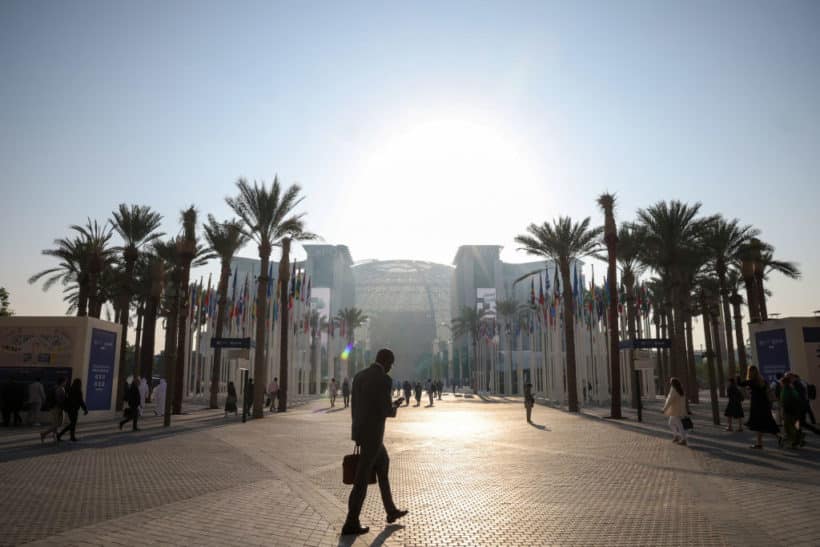
LONDON, Dec 19 (Reuters) – After winning a fraught bid to host next year’s United Nations climate talks in Baku, a senior Azerbaijani official promoted the country’s gas reserves in aiding the global the energy transition.
“Azerbaijan is also a gas exporting country, and gas – if you compare it with some other sources of energy – is a much cleaner sort of energy,” said Hikmet Hajiyev, foreign policy adviser to President Ilham Aliyev, in a meeting with reporters on Tuesday. “Azerbaijan has quite serious potential of gas,” he said.
The country has an estimated 2.5 trillion cubic metres of natural gas reserves, according to the 2021 BP Statistical Review of World Energy.
While the global warming emissions from burning natural gas are lower than those from coal or oil, they remain much higher than green energy sources.
Climate scientists have said that rising production of natural gas is emerging as one of the biggest drivers of climate change, and could cripple efforts to limit warming to 1.5 degrees Celsius above preindustrial levels.
The decision this month at COP28 talks in the UAE to host COP29 in Baku resolved months of geopolitical deadlock over the location of the 2024 U.N. climate summit.
Azerbaijan’s bid received approval from nearly 200 countries, including longtime adversary Armenia, which have recently agreed to basic peace treaty principles after decades of conflict.
“I am glad that we found a way out of the situation,” said Hajiyev. “Now, we can build a coalition between climate action and the peace agenda”.
But climate campaigners have raised concerns about again holding the U.N. climate talks in another oil producing nation.
Asked to respond to such criticisms, Hajiyev said oil-exporting nations should lead by example and that hosting the summit was complementary, not a paradox.
He added the country, which is a member of OPEC+, supported a “transitional approach” to moving away from fossil fuels, rather than an immediate phase out.
“When will we stop (drilling)? I don’t have a clear answer for that,” said Hajiyev, noting the country had to meet standing contracts with business partners. BP is Azerbaijan’s largest foreign investor.
Hajiyev said there was still a need for fossil fuels beyond energy demand, including their use in plastics – which are also the subject of an international treaty under negotiation that could curtail their use.
“We should be very realistic and have a broader vision with regards to fossil fuels,” he said.
Hajiyev also highlighted the country’s new investments in green energy, including wind and solar, and efforts to construct an electric cable under the Black Sea to transfer green Azeri energy from planned Caspian Sea windfarms to Europe. (Reporting by Gloria Dickie; editing by David Evans)

